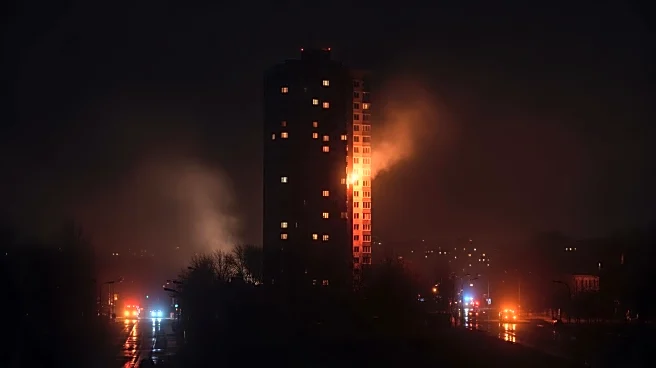What's Happening?
President Trump has directed the Bureau of Prisons, along with the Department of Justice, FBI, and DHS, to assess the reopening of Alcatraz as a 'substantially enlarged and rebuilt' prison. The Bureau of Prisons Director,
William K. Marshall III, announced an immediate assessment to determine the needs and next steps for this initiative. Alcatraz, located in San Francisco Bay, has not been operational since 1963 and is currently maintained by the National Park Service as part of the Golden Gate National Recreation Area. The facility, historically known as 'The Rock,' housed notorious prisoners like Al Capone and is now a popular tourist attraction. The proposal has sparked debate, with critics highlighting the high costs associated with restoring and maintaining the facility, as well as the impracticality of its location in a high-cost living area.
Why It's Important?
The proposal to reopen Alcatraz as a federal prison has significant implications for U.S. public policy and the federal prison system. The initiative could lead to substantial financial investments, given the estimated $3 million to $5 million needed for restoration and maintenance, alongside daily operating costs. Critics argue that the Bureau of Prisons already faces challenges with existing facilities, many of which require extensive repairs. The decision to reopen Alcatraz could divert resources from addressing these issues. Additionally, the proposal has political ramifications, as it has been dismissed by figures such as House Speaker Emerita Nancy Pelosi, who views it as impractical and not serious. The debate underscores broader discussions about prison reform and resource allocation within the federal system.
What's Next?
The Bureau of Prisons will conduct an assessment to evaluate the feasibility of reopening Alcatraz. This process will involve collaboration with law enforcement and federal partners to determine the practicality and cost-effectiveness of the proposal. The assessment will likely consider alternative solutions, such as building new facilities in areas with lower living costs. Political leaders and stakeholders may continue to voice their opinions, influencing the direction of the initiative. The outcome of the assessment could impact future decisions regarding federal prison infrastructure and policy.
Beyond the Headlines
The proposal to reopen Alcatraz raises ethical and cultural questions about the use of historical sites for modern purposes. Alcatraz's transformation from a notorious prison to a national park and tourist attraction reflects broader societal shifts in how historical sites are preserved and utilized. The initiative also highlights the tension between preserving cultural heritage and addressing contemporary needs within the justice system. Long-term, the proposal could influence discussions on the balance between historical preservation and practical use of government-owned properties.








